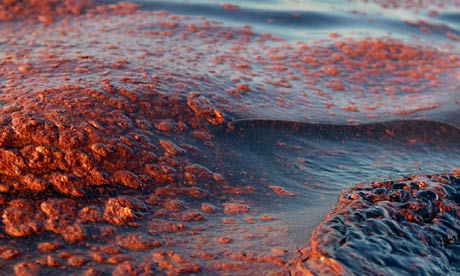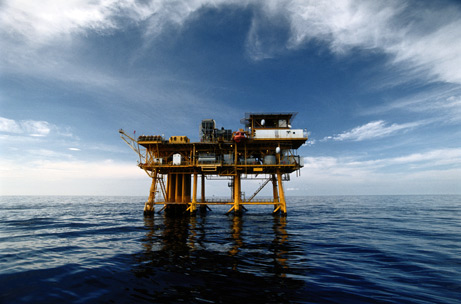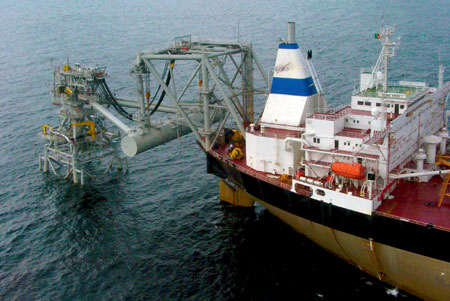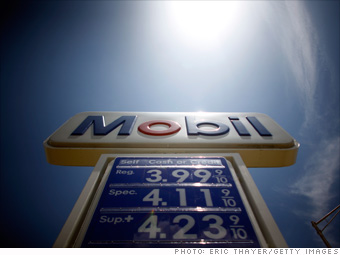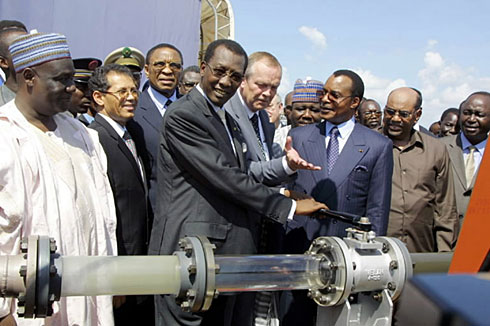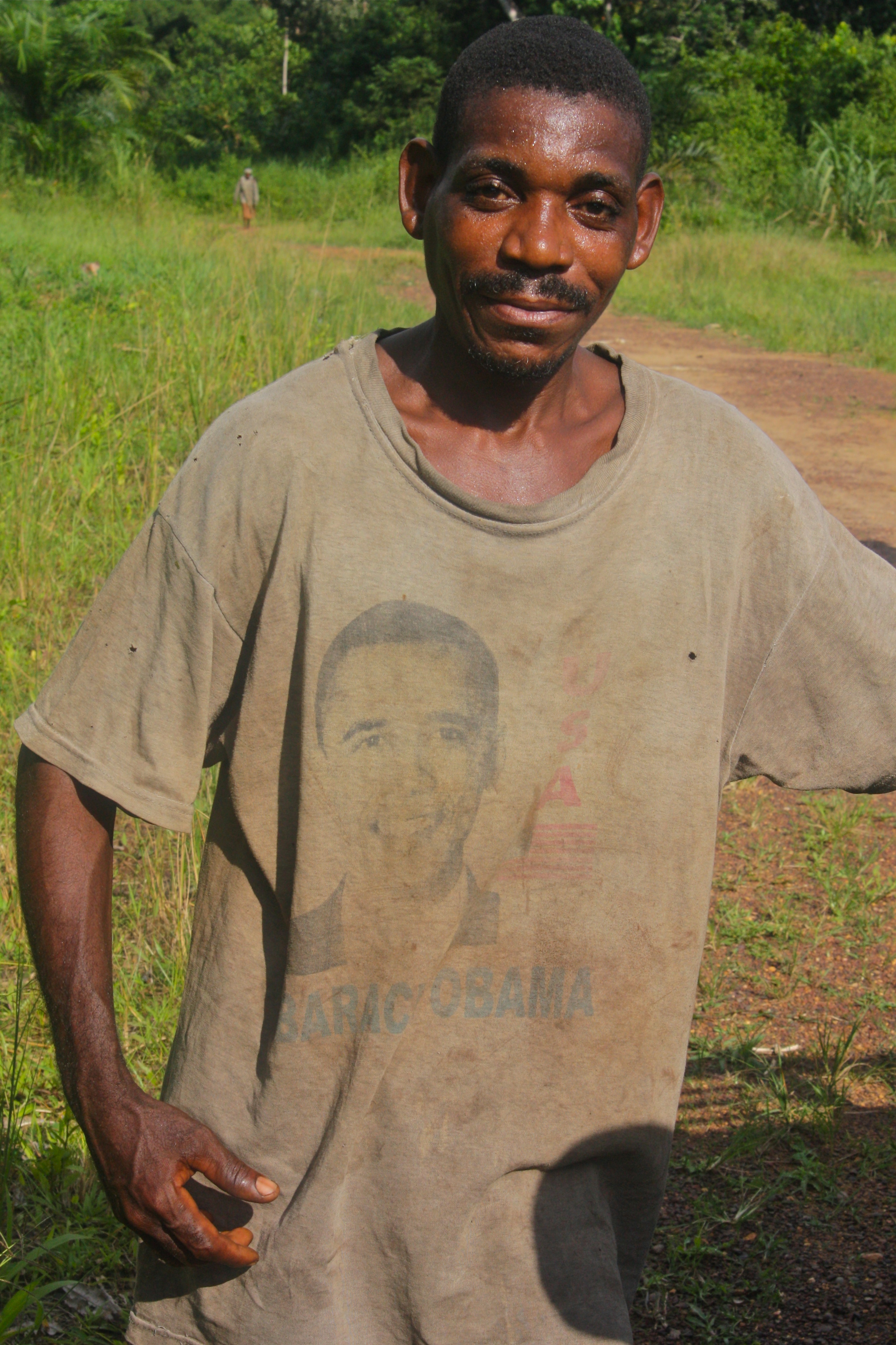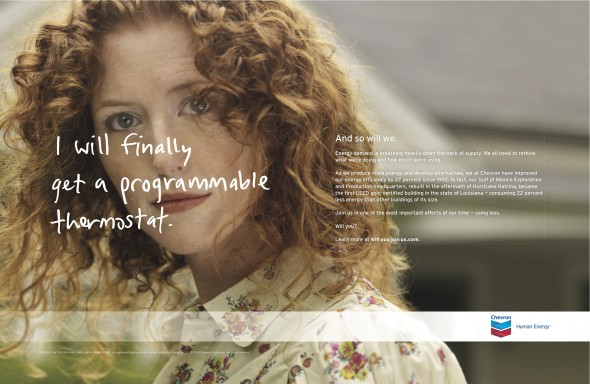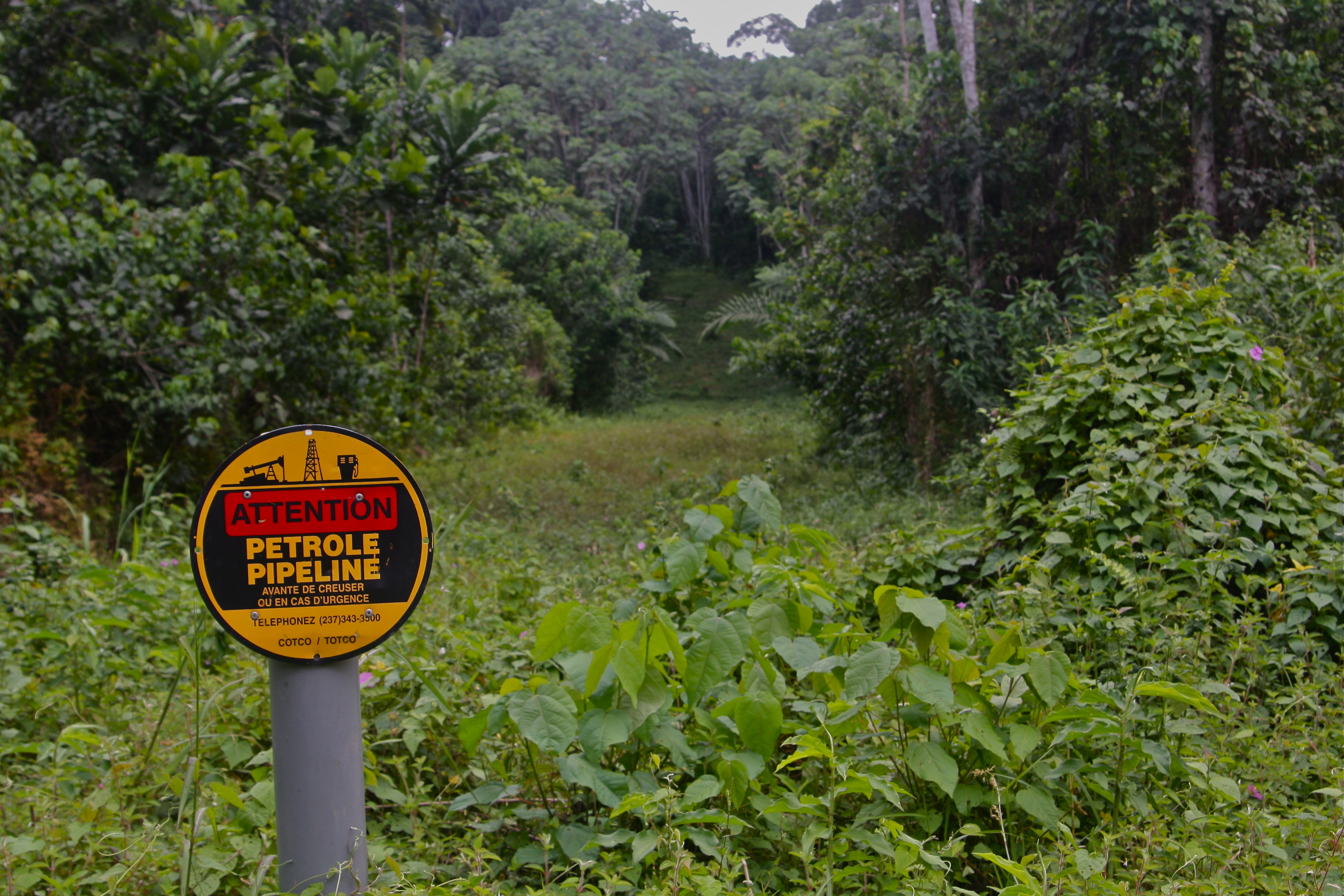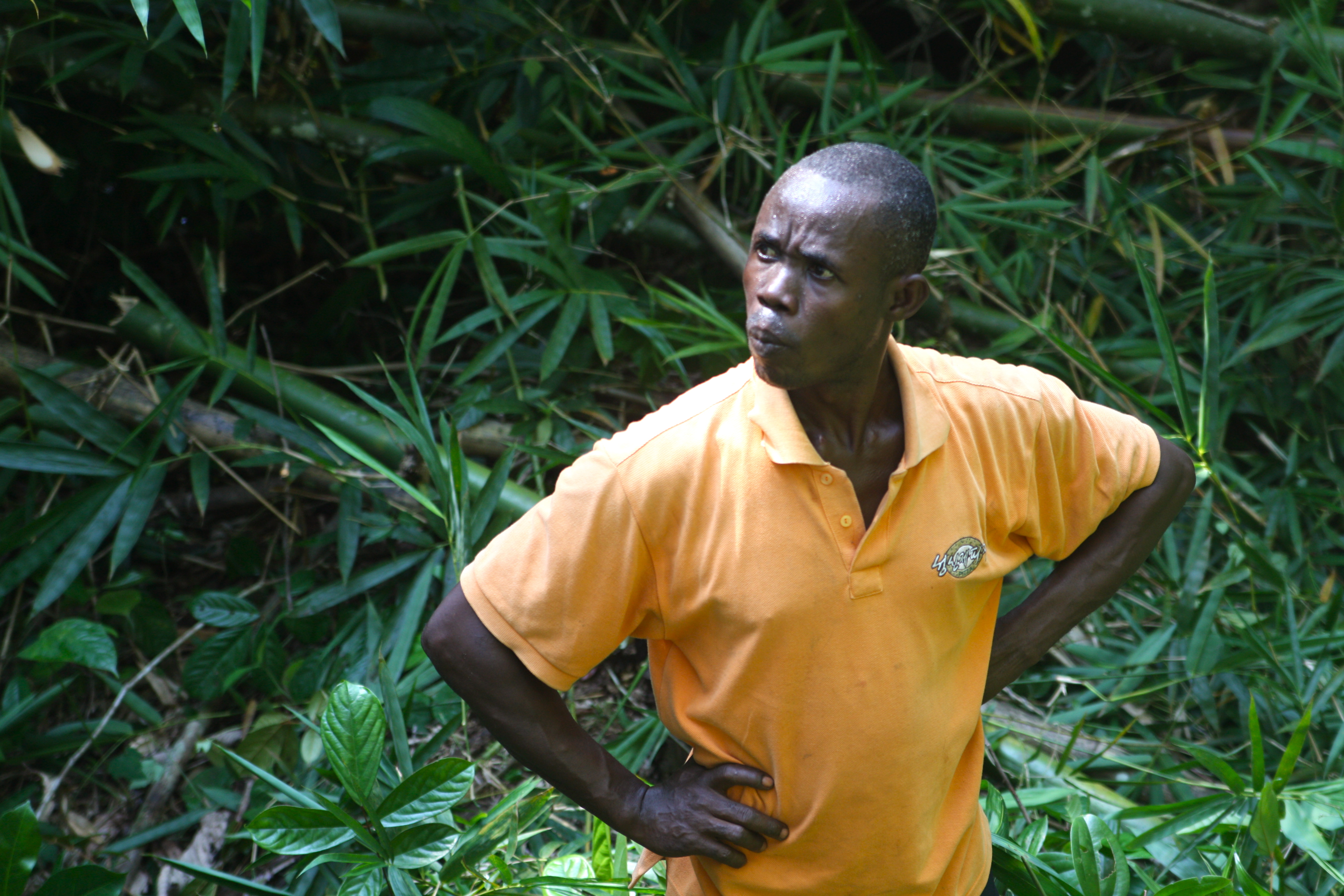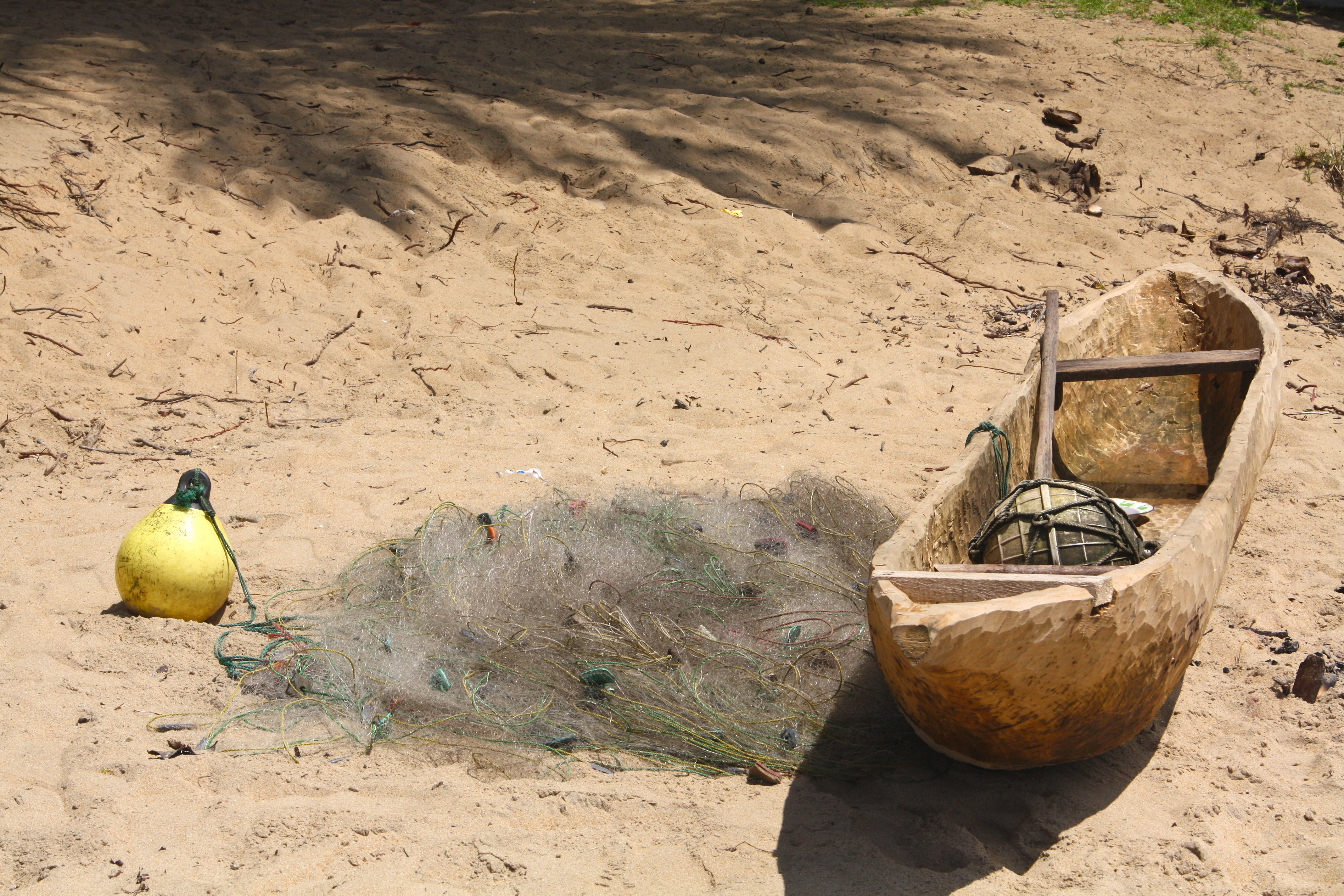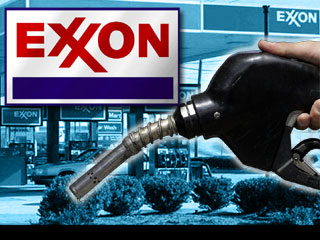The Yes Men Inspire Nigerian Activists
The Yes Lab has helped Nigerian activists pull off a successful hoax. Here’s the story:
Shell Flummoxed by Fakers
Company flummoxes back; activist group takes responsibility
The Hague – Hours before Shell’s annual general shareholder meeting on Tuesday, and not long after BP’s oil rig catastrophe, millions of people around the world received press releases announcing that Shell would implement a “comprehensive remediation plan” for the oil-soaked Niger Delta. The plan included an immediate halt to dangerous offshore drilling, the end of health-damaging gas flaring, and reparations for the human damage caused over the decades of Shell’s involvement.
The “good news” was fiction, created by an ad-hoc activist group called the Nigerian Justice League to generate pressure on Shell to withdraw from, and remediate, the Niger Delta. According to the activists, Shell’s operations in the Delta have helped transform that area into the world’s most polluted ecosystem, which has in turn resulted in a human rights catastrophe.
(The NJL developed the project as part of the Yes Lab, a workshop run by a group called “The Yes Men” to share their experiences and facilitate the projects of others. The Yes Lab is in the midst of a fundraising drive.)
“Shell, Chevron, and the others are perpetrating a massive, life-threatening hoax by claiming that they can’t quickly stop their gas flaring, reduce their oil spills, and clean up their mess in the Niger Delta,” said Chris Francis of the Nigerian Justice League. “Our press release revealed the truth: that there is a decent way forward, instead of the continual deceit we get from them.”
Shell’s public relations staff quickly and energetically moved to contain the fallout from the fake release. On Tuesday, Shell attempted to eliminate the Justice League’s spoof Shell website by complaining that it was a “phishing scheme” to the upstream internet service provider. Shell then sent a threatening legal letter to the Danish internet provider hosting the site.
In a related story, the Financial Times (a blog of which, incidentally, was duped by the fake release) refused to run a hard-hitting advertisement, created and paid for by Amnesty International, that called for action against Shell for its Niger Delta legacy. Like the fake release, the ad was timed to coincide with Shell’s May 18 AGM.
“For now, Shell’s legal threats are bearing ripe fruit,” said Esmée de la Parra of the Nigerian Justice League. “But they can’t keep blustering their way to destruction forever. Eventually, people will have had enough. For the sake of the planet, let’s hope ‘eventually’ is very soon.”
Self regulating?
Here’s a worrisome bit of reporting from the New York Times: “Regulator Lets the Industry Call the Shots on Safety.” Eric Lipton and John Broder report that the Minerals Management Service and the Interior Department never took the actions necessary to impose backup systems to control the giant undersea valves known as blowout preventers. This despite numerous spills and repeated warnings about the necessity of such measures over more than a decade.
The article continues with a list of oversights, safety violations and government passes for the industry. Again, I wonder about Africa. Who is regulating drilling operations and enforcing those regulations in West-Central Africa?
Deepwater Drilling
I just came across this highly informative post, “Deepwater Drilling — What Can go Wrong?” on the Ghanaian blog, CROSSED CROCODILES.
Check it out. The unfolding disaster in the Gulf of Mexico is indeed a cautionary tale for Africa. Angola, Equatorial Guinea, Gabon, Cameroon, Nigeria, Ghana… deepwater drilling is happening or on the horizon in a number of countries.
Despite the massive efforts of the oil companies and state and federal authorities, the situation in the Gulf of Mexico is spinning out of control. The thought of a similar accident occurring off the coast of West or Central Africa is terrifying.
Oil Spill near Kribi, Cameroon
A new oil spill was reported at the marine loading terminal offshore from Kribi at 1:45 am on April 22nd.
According to COTCO, the “minor spill” occurred during a violent storm. The transfer of oil from the loading terminal (FSO) to a waiting tanker was halted due to bad weather. High waves washed some “residual oil” from the deck of the waiting tanker. Again, according to COTCO, less than five barrels total were spilled and the oil was immediately cleaned up.
No oil has been reported on the coast, but fishermen did report seeing a sheen of oil offshore.
Several Cameroonian NGOs have released a statement deploring the lack of communication between COTCO and the local populations as well as the lack of any statement or information from the Cameroonian government. The Comité de Pilotage et de Suivi des Pipelines (CPSP), the Cameroonian authority responsible for the pipeline, has not made any public comments regarding the spill. With no information from the government and no journalists allowed near the marine loading terminal, it is extremely difficult to verify COTCO’s information.
In November 2009 the Cameroonian government adopted a national oil spill response plan. This plan, required by the World Bank, should have been in place before oil began to flow along the pipeline in October 2003. The Cameroonian government has not made the plan public and many civil society activists believe the plan remains non-operational. Samuel Nguiffo, from the Center for the Environment and Development, points to the unfolding disaster in the Gulf of Mexico as a warning: “It is urgent that the government increase its capacity to respond to a disaster and make the oil spill response plan operational.”
In the event of a major spill, several million barrels of oil could end up in the Atlantic ocean 12 km. off the coast of Kribi, Cameroon’s main tourist destination and an important fishing and sea turtle nesting zone. The thought of a spill anywhere is terrifying, but watching what’s going on in the Gulf of Mexico now makes me extremely uneasy about Cameroon. Of course the situation in the Gulf is particular, but one clearly sees that controlling an oil spill, even with the best equipment and ample manpower, is incredibly difficult. Any significant spill at the marine loading terminal in Kribi would likely be an ecological (and economic) disaster of major proportions.
It’s important to remember that the offshore marine loading terminal at Kribi (the FSO), is a single-hulled refurbished tanker. Today all tankers, including those used as FSOs, must be double-hulled — an additional protection against spills.
Tax Time
It’s that time of year, and ExxonMobil is getting a lot of attention. The company is number two on the Fortune 500 list this year, behind WalMart and ahead of Chevron.
ExxonMobil earned $19.3 billion in profits. That’s a significant decline from 2008 when ExxonMobil was at the top of Fortune’s list, but all in all, still pretty good.
Rex W. Tillerson, Chairman of the Board and Chief Executive Officer, earned more than $10 million in total compensation (although he ranks “only” 129th on the Forbes Executive Pay list).
ExxonMobil spent $27 million lobbying last year, outspent only by the U.S. Chamber of Commerce.
And ExxonMobil’s taxes? Well, apparently that’s complicated. ExxonMobil does pay a lot of taxes, but most of the corporation’s tax spending is overseas. According to Forbes, “Naturally, the oil giants do most of their business with high-tax oil-rich regimes. Exxon has many homes for the plentiful profits left over, with 20 wholly owned subsidiaries domiciled in the Bahamas, Bermuda and the Cayman Islands. These (legally shelter) the cash flow from operations in the likes of Angola, Azerbaijan and Abu Dhabi.”
Mini update: News from Chad
Happier days…
I haven’t posted anything in a while, as I’m in the midst of editing. I’ll post more material soon. In the meantime, here’s some news from the recent IMF staff mission to Chad (March 4-17):
“Economic activity remained sluggish in 2009, but inflation increased further, owing to food prices. Low rainfall, and therefore agricultural output, plus the trend decline in oil production led to a contraction in real GDP of about 2 percent. The bad harvest could imply food shortage for up to 2 million people (18 percent of the population). The need for additional food is estimated at between 80,000 to 100,000 metric tons, for which the government has requested external assistance.
“The global financial crisis affected Chad mainly through the ensuing decline in oil prices. The fiscal position deteriorated sharply in 2009 to a deficit of about 20 percent of non-oil GDP as the government maintained spending levels in the face of a fall-off in oil revenues by almost depleting its oil savings and borrowing from the central bank…Overspending on security and investment in 2009 absorbed an important part of the resources that had been lined up to finance the 2010 budget.”
Hardly looks good. Chad remains desperately poor, 18% of the population risks going hungry and the government can’t pay its bills. All this despite the benefits that oil brought to the country.
Money in, money out. I think this is what economists’ call the “resource curse”, you know, what wasn’t going to happen this time…
News from Washington
I’ve recently returned from Washington, D.C., where I was able to interview World Bank and other officials about the Chad-Cameroon Oil Development Project.
Very interesting…
I’m now editing some video sequences and will post material soon.
First African President
The town of Campo is located about 80 km (50 miles) south of Kribi, just north of the border with Equatorial Guinea. On paper, the road from Kribi to Campo is paved — it is, after all, an international highway. Of course what’s printed on the map and the reality on the ground are often two very different things. The road, in fact, is unpaved and in terrible condition. At the end of the rainy season the drive from Kribi to Campo took longer than three hours. Along the way we encountered several big trucks stuck in the mud, their drivers sitting on the roadside. They were waiting for the sun to dry the mud enough for the trucks to move again. A wait that could last several days…
For me Campo was a stop on the road to the Campo Ma’an National Park. To access the park by land, you have to travel another two and a half hours east along what used to be a logging road. Now it’s more of a path, barely wide enough for a car to pass. The forest ranger who accompanied us to the park said that on average the road gets used once every two months, just enough to keep the forest from completely reclaiming the land.
At the last settlement before the park entrance, we encountered a Bagyeli man in an Obama t-shirt. “The first African president,” he said. Obama t-shirts weren’t unusual; I also saw a few cars, buses — even bars — named Obama. But this t-shirt was special. It was so worn and so far from any town or city; it really seemed to sum up the symbolic importance of Obama here. The first African president.
Now with 2010 just around the corner, let’s remember Obama’s declaration: “Africa doesn’t need strongmen. It needs strong institutions.” He pronounced those words in July while in Ghana. I hope that in this coming year Obama will be more than the symbolic first African president, that he will take actions to show his commitment to the continent and its peoples is real.
Chevron in the News
I don’t write much about Chevron, as ExxonMobil is the lead-operating partner on the Chad/Cameroon Development Project. But Chevron is one of the consortium members, with a 25% ownership stake in the venture.
This week’s East Bay Express features an article by Peter Asmus, The Case Against Chevron. The article describes an unprecedented campaign by nonprofit groups targeting Chevron’s global operations.
The article doesn’t mention Chad or the pipeline; activists working on the Chad/Cameroon Development Project usually focus their attention on ExxonMobil. But it’s worth reminding people that the Chad Oil Project includes three private partners: ExxonMobil, Petronas and Chevron.
I found Asmus’ article interesting as he devotes part of it to discussing if and how Chevron can become part of the solution, including what he calls, A 12 Step Program for Chevron.
A similar program could be drawn up for the Chad/Cameroon Development Project. The challenge, of course, is getting a company as powerful as ExxonMobil to hear, let alone, heed the call for change.
A new article on the Chad-Cameroon Oil Pipeline
I read a strong piece today on AlterNet, A Humanitarian Disaster in the Making Along the Chad-Cameroon Oil Pipeline — Who’s Watching?, written by Brendan Schwartz and Valery Nodem who I recently had a chance to meet in Yaoundé.
The article provides an excellent summary of much of what’s wrong with the Chad-Cameroon oil pipeline… and describes many of the ongoing issues that prompted me to begin work on the Pipe(line) Dreams project.
Missing Fish
Fishing in Kribi isn’t what it used to be. There are certainly multiple reasons for the decline in fish stock, but everyone here singles out the pipeline as the main culprit. The pipeline cuts right through the middle of the coastal village of Bume, just south of Kribi, on its way to the marine loading terminal 12 kilometers offshore. The residents of Bumé, who depend entirely on fishing, blame the pipeline for killing their livelihood.
There are two types of fishing in the Kribi area and the pipeline impacted each differently. The hardest hit are the small, village fisherman — like the residents of Bumé — who put their nets out just offshore. These fishermen do not have motor power; they paddle their small dugout canoes out to sea and are unable work more than a few kilometers from shore.
They used to catch the fish that lived in the reef just offshore. That reef was blasted away during pipeline construction and the fish have never come back. Using their traditional fishing methods, local fishermen now pull in only a few kilos of fish at a time. Sometimes, they pull in nothing at all.
As I mentioned in an earlier post, the initial pipeline plans did not include the destruction of the reef. As no one from ExxonMobil would speak to me, I could not find out why this, a significant environmental impact, was not not part of any early reviews. The shallow waters of the coast here are lined with rocky offshore reefs and the Bumé reef was clearly visible. If any local fishermen had been interviewed, they would have talked about the importance of the reef for local fishing.
C is for Corruption
This is an angry man. He’s standing in a 4 million CFCA (US$ 9000) fish pond. Well, it was supposed to be a fish pond.
When the last section of the pipeline was laid from the beach at Kribi to the offshore marine loading terminal, construction crews blasted away the reef at Bumé, the fishing village at “ground zero.” The fish left the area and for the population of Bumé, entirely dependent on fishing, this was a disaster.
The original pipeline plans did not include the reef’s destruction, so there was no mitigation plan in place when the crews came through. After much discussion, the consortium offered to construct two ponds for fish farming. Never mind that the villagers of Bumé are fisherman, not fish farmers, and that they have neither the skills nor the resources for aquaculture. These artisanal fishermen paddle out with their nets out once or twice a day, catching relatively small amounts of fish in the shallow waters. This is subsistence fishing: they bring in just enough to eat and, if all goes well, sell a few fish each day.
What’s a Tree Worth?
Godefroy Edzoa is the traditional chief of Ekabita. The pipeline crosses straight through the fields of Ekabita where people grow cocoa, avocados, mangoes, safou, papayas, and a variety of crops including bananas, corn, cassava, squash and peanuts.
Edzoa tells me that when the pipeline people came to Ekabita, they told residents there would be compensation for damaged crops. They also said that once the pipeline construction was completed, residents could farm their lands again. However, no fruit trees could be planted on the 30-meter wide easement, as tree roots could damage the pipeline. Farmers were told that the easement would be cleared several times a year, probably after harvests, but were given no firm details. Even today farmers can not tell me exactly when the easement will be cleared, as the calendar seems to change each year.
Deby’s Surprise Visit
The President of Chad, Idriss Deby, made a surprise visit to Yaounde on October 28th. As the visit was announced only 24 hours before Deby’s arrival, the private press was full of speculation on what urgent matter brought Deby to Cameroon.
Officially, Biya and Deby held a short, private meeting to discuss bilateral cooperation and the receding waters of Lake Chad, an item that both countries will bring up at the Copenhagen climate conference. Unofficially, the corruption scandal at the Bank of Central African States, in which a Chadian minister may be implicated, as well as the renegotiation of pipeline contracts, could have been items for discussion.
Pipeline Dreaming
What happens when a major American oil company comes through two poor African countries with a project to drill for oil in one and transport it across the other?
Dreams. Fantasies. Unrealistic expectations. False hopes. As Samuel Nguiffo, founder of the Center for the Environment and Development in Yaounde told me, “People hear oil, America, dollars, jobs. They hear it’s a 25-year project. From there it becomes money and jobs for everyone for 25 years.”
Langue de bois
I’ve been in Cameroon for a week now, and there’s lots to talk about. I have to begin, though, with my efforts to get anyone connected with the pipeline project to speak to me. As I’ve been spending many hours in waiting rooms, I felt that this photo kind of summed up a good part of my week.
“Langue de bois” is a French expression: literally, a wooden tongue. Cliches. Hackneyed phrases. Spin. Waffle. What politicians and business leaders do when they want to talk without saying anything, avoid answering difficult questions, steer our attention away from unpleasant subjects, etc.
“As you can imagine, ExxonMobil receives many worthwhile requests from news organizations for interviews. Unfortunately, it is impossible to respond affirmatively to all these requests. Due to timing and other business constraints, representatives of Esso Chad will not be available to participate in the opportunity you present. However, for information, I’ve enclosed a case study of the project, as well as a 2008 news release that notes the benefits of the project.”
En route
 Here I am watching the Paris drizzle from terminal 2C at Charles de Gaulle airport, waiting for my flight to Douala. After months of discussions and proposal writing and waiting for the rainy season to (almost) end, I’m finally off to Cameroon.
Here I am watching the Paris drizzle from terminal 2C at Charles de Gaulle airport, waiting for my flight to Douala. After months of discussions and proposal writing and waiting for the rainy season to (almost) end, I’m finally off to Cameroon.
My plan is to eventually travel the length of the pipeline, to see up-close how this project has really affected people in Chad and Cameroon. On this first trip, I’ll explore the last 250 kilometers of the pipeline, a section that passes close to Yaoundé, the capital of Cameroon, and then continues through the rainforest to the town of Kribi, on the Atlantic coast.
The forest between Yaoundé and Kribi is home to the Bagyeli, one of Cameroon’s two pygmy populations. The World Bank and the ExxonMobil-led consortium were convinced the pipeline project would help the Bagyeli. As part of the mitigation process, the pipeline consortium established an indigenous peoples’ foundation to run health and education programs for the Bagyeli. Many environmentalists and civil society activists, on the other hand, feared that the pipeline would disrupt the Bagyeli’s already fragile existence. As many Bagyeli continue to rely on the forest for their food and their livelihoods, any damage to the local ecosystem could be devastating.
This is one story that I’ll be looking at in the coming weeks.
But now, it’s boarding time.
Cargo of Hope
In October 2003, Exxon Mobil took out a page in the New York Times to announce the first shipment of crude oil from Chad:
“Voilà. A new chapter in world energy markets opened in early October when the first cargo of crude oil from the African country of Chad was loaded onto a tanker off the coast of Cameroon….And so with the first oil loaded, an extraordinary project begins to supply energy to the world as well as a better life and a cargo of hope to the people of Chad and Cameroon.”
You can see the entire page at: Voilà!
ExxonMobil buys stakes in Ghanaian oil blocks (not)
UPDATE: The Ghanaian government refused to allow the ExxonMobil – Kosmos deal to go through and ExxonMobil was unable to acquire Kosmos’ share of the Jubilee Field. The reasons that President Mills’s government blocked the sale are complicated, but at the center of the dispute are alleged kickbacks that Kosmos made to the previous Ghanaian administration. Kosmos has become one of the operators of the Jubilee Field, a role the company did not originally envisage.
ExxonMobil heads west…
With the discovery of large offshore oil reserves, Ghana is set to be Africa’s next petro-state. And as of October 12th, ExxonMobil is officially a partner in Ghana’s oil industry.
Not surprisingly, the Ghanaian government has pledged that oil development will benefit the population of the country. Ghana is not Chad, of course, but there are many lessons to be learned from the Chad Oil Project as much of what went wrong in Chad and Cameroon can easily happen in Ghana. A lack of meaningful citizen involvement, insufficient communication with local populations and a premium on speed (the Chad-Cameroon oil pipeline was finished one year ahead of schedule) all reduced the Chad Oil Project’s chances of success from the get-go. A recent report from Oxfam, “Ghana’s big test: Oil’s challenge to democratic development,” notes that citizen participation and communication are also lacking in Ghana’s oil planning. The report warns of the risks associated with moving ahead too quickly — now that ExxonMobil is involved, this risk may become more significant.
Paradise and the Pipeline
Kribi. It could be paradise. The small beach town on Cameroon’s Atlantic coast is one of the country’s prime tourist attractions. The dense rainforest stretches almost to the water’s edge; a strip of white sand beach is all that separates the greens of the forest from the turquoise waters. Just south of town the famous Lobé waterfalls tumble over black volcanic rocks directly into the ocean. Market women sell and prepare fish right off the boats at the town’s small port.
The first time I visited Kribi was in December, 1994, and the beauty of the place was stunning. Of course, most of the town was rundown and ramshackle. Electricity ran intermittently and the water was not fit to drink. Unfortunately this was (and is) the story of much of Cameroon. But Kribi managed somehow to have a certain charm and people spoke proudly of their little corner of paradise.


